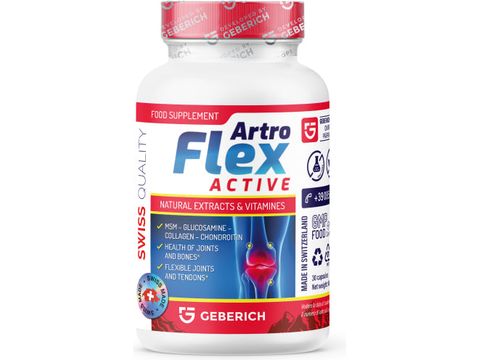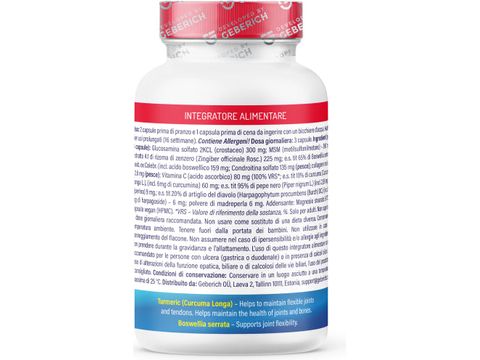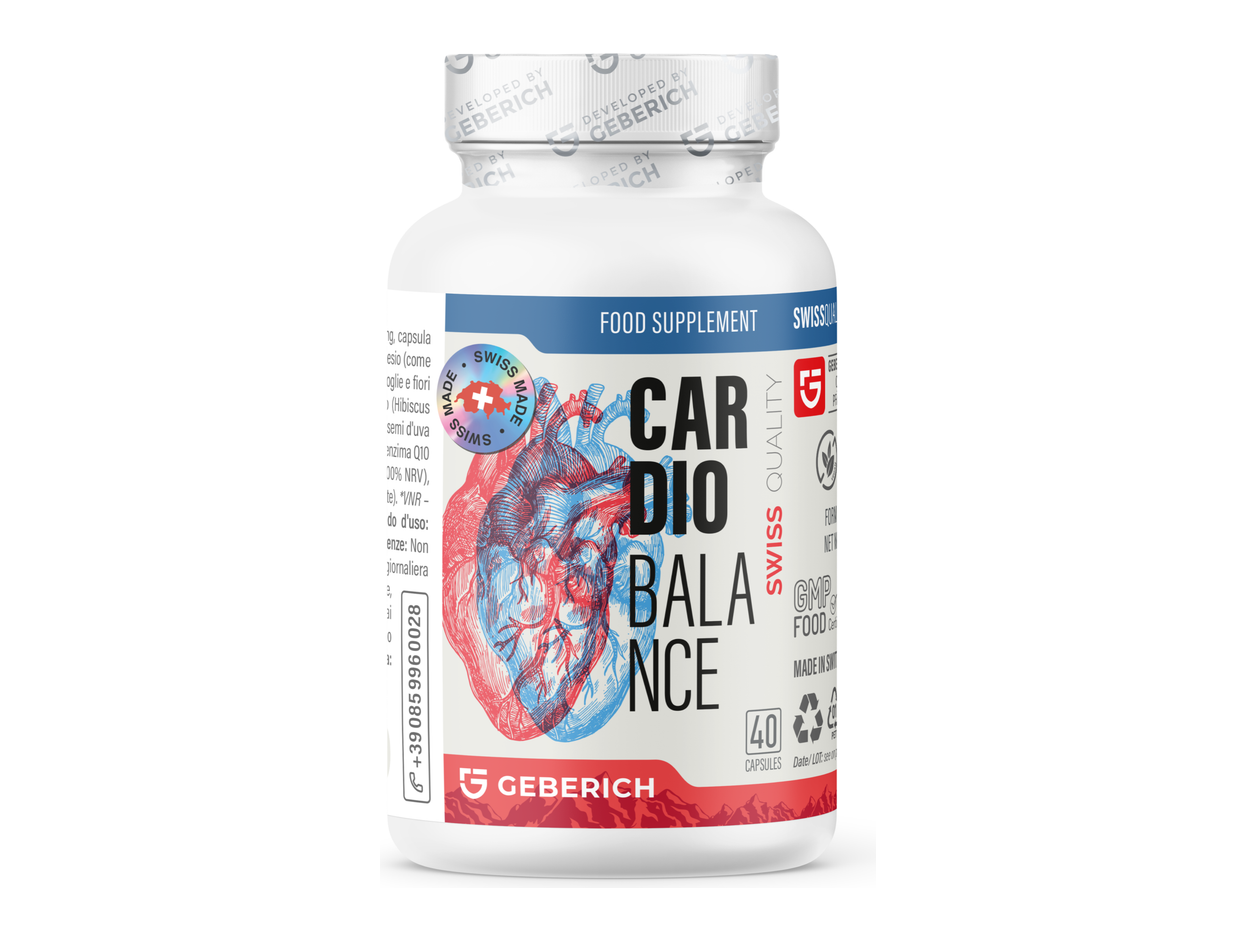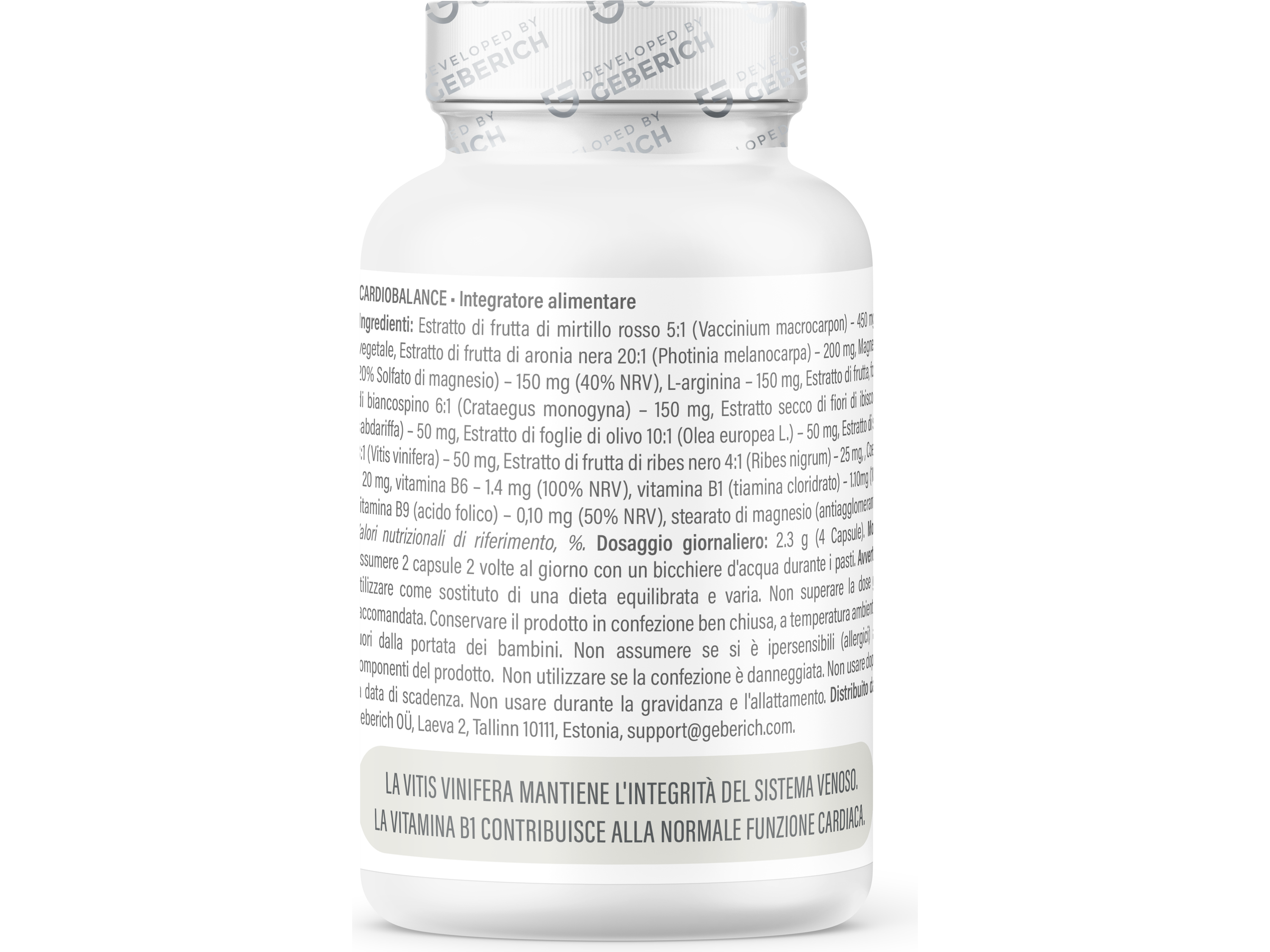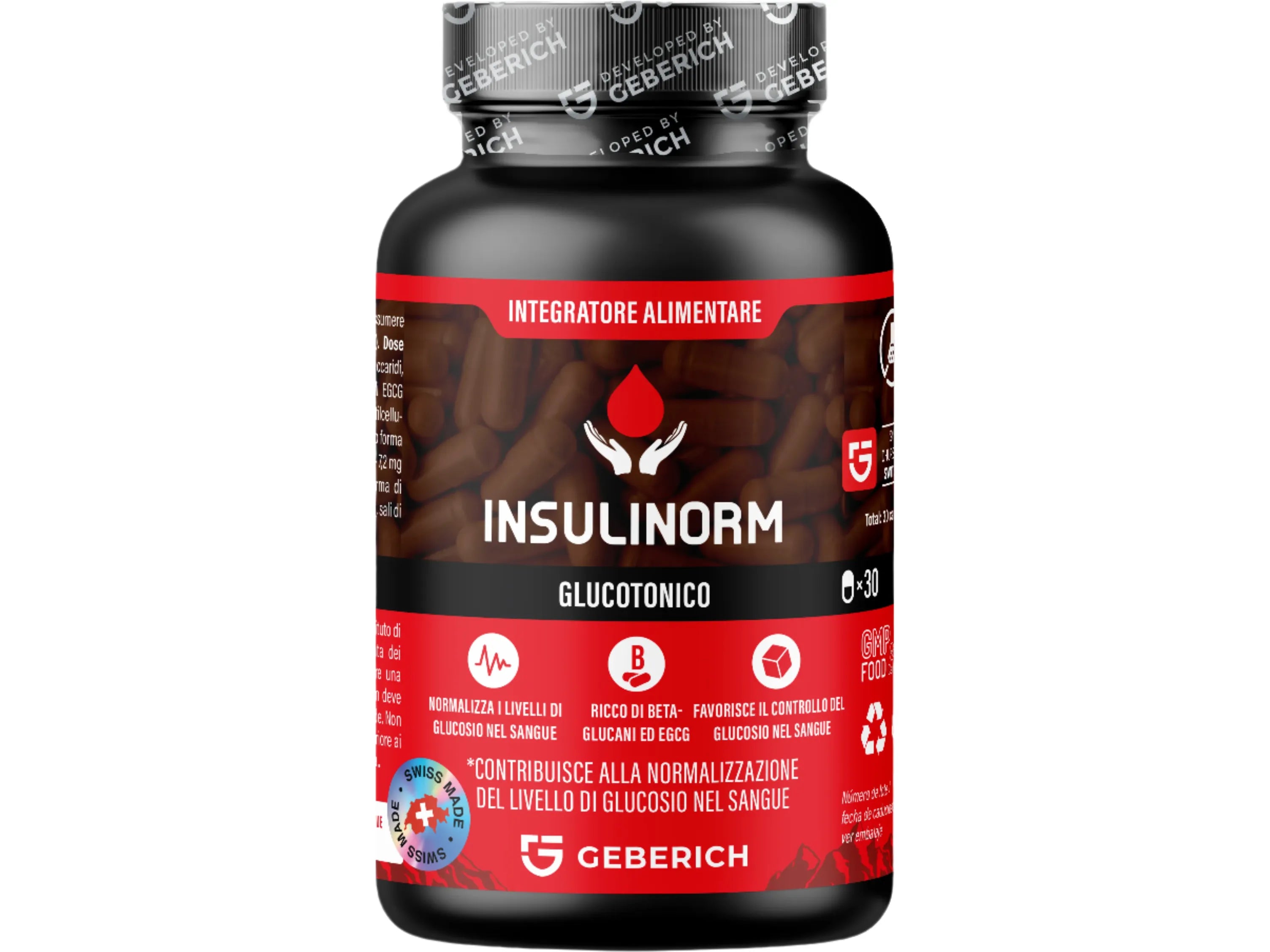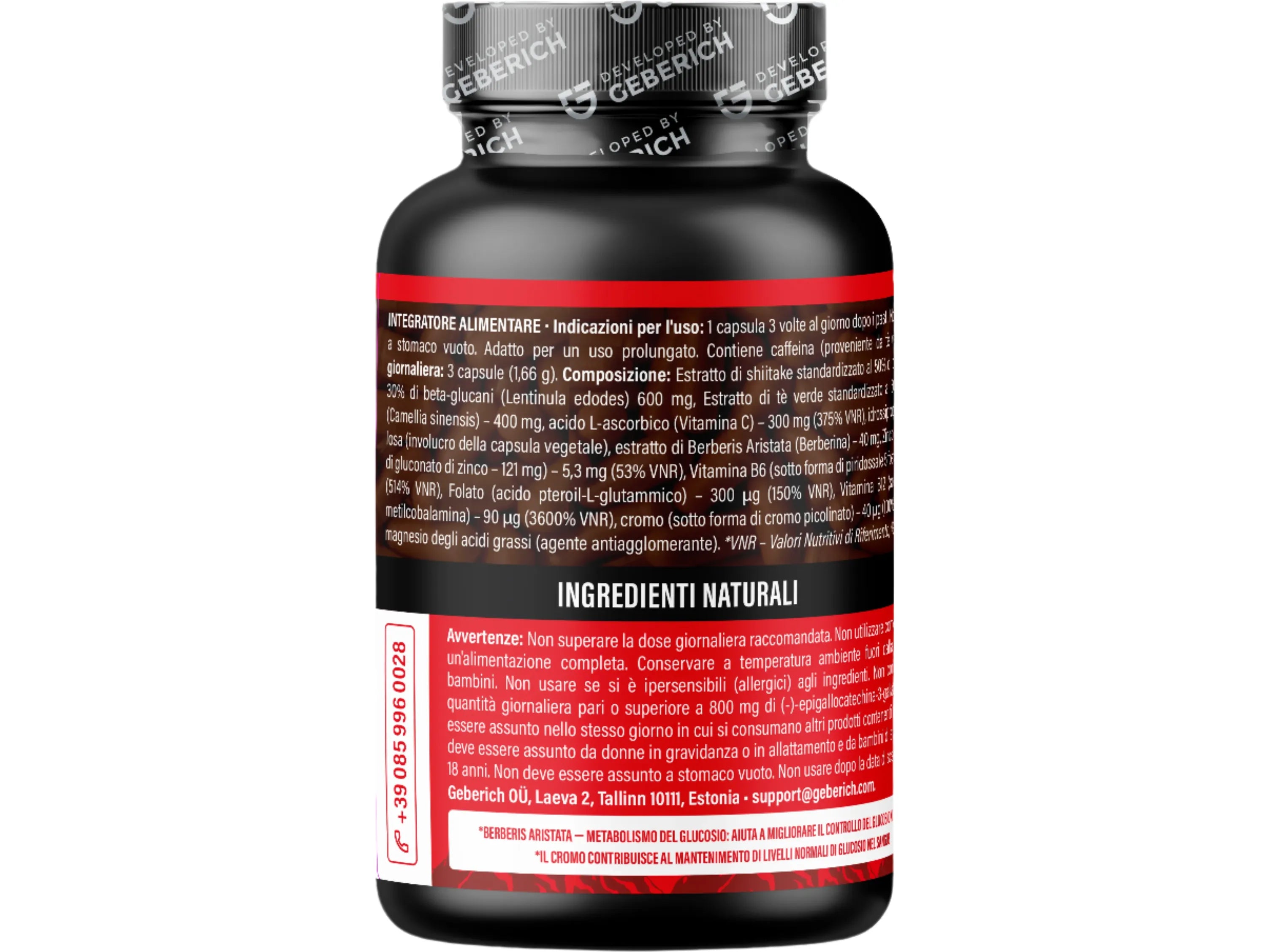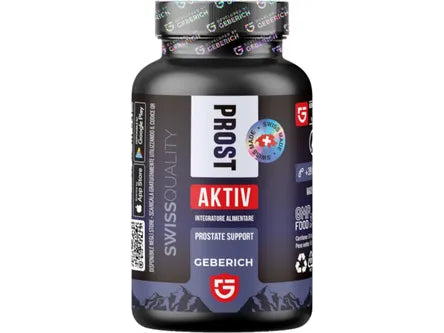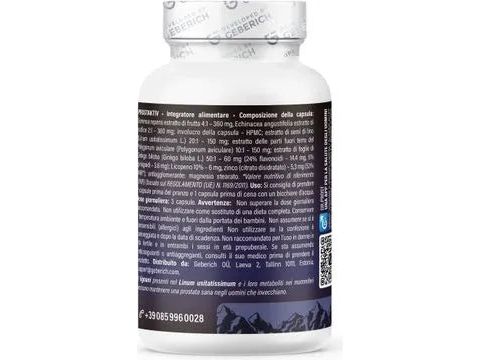Blog posts
Supporting Your Immune System Year-Round
A strong and well-functioning immune system is indispensable for maintaining good health throughout one’s life. Whether you are looking for ways to support a child’s immunity or hoping to discover effective methods to improve your own, abundant scientific research points toward a well-rounded strategy as the most effective. By integrating nutritious dietary choices, frequent physical activity, sufficient rest, and stress-reduction tactics, you can bolster your body’s natural protective mechanisms. This paper investigates how to nurture immune health through evidence-based approaches, motivational insights, and actionable illustrations. It also underscores the importance of foods that contribute to immune resilience — especially fruits that promote immune strength in sustaining energy and vitality all year long for individuals of all ages. Overview of the Immune System The immune system is composed of a sophisticated array of cells, tissues, and organs that collaborate to shield the body from invaders such as viruses, bacteria, and fungi. Among its key elements are white blood cells (including lymphocytes, neutrophils, and monocytes), the lymphatic system (encompassing lymph nodes, vessels, and lymphoid tissues), and physical barriers like skin and mucous membranes. Over the years, researchers have uncovered the ways in which specific lifestyle habits can help maintain the functionality and vigor of these essential immune components. The immune system’s effectiveness depends on accurately differentiating between internal tissues and external threats. When pathogens are detected, the body launches an immune response, which can involve inflammation, fever, or the production of antibodies. Although short-term inflammation can be advantageous, extended inflammation poses health risks. Hence, integrating practices that support immune function can decrease the chance of chronic inflammation, creating a healthier reaction to routine germs and seasonal challenges. Essential Nutrients for Immune System Support (Mayo Clinic Perspective) The Mayo Clinic identifies various nutrients as critical for maintaining robust immune activity. These include: Vitamin C: Celebrated for its part in collagen synthesis and its antioxidant properties, vitamin C assists immune processes by safeguarding cells from damage and aiding immune cell performance. Adequate vitamin C can be obtained from citrus fruits, bell peppers, broccoli, and strawberries. Vitamin D: Frequently referred to as the “sunshine vitamin,” vitamin D has received substantial attention for its pivotal role in immune modulation. The Mayo Clinic stresses the significance of ensuring adequate vitamin D levels for optimal health. Though sunlight serves as a prime source, one can also obtain vitamin D from fatty fish (like salmon and mackerel), fortified dairy products, and dietary supplements. Zinc: This trace mineral is essential for the growth and proper function of immune cells. Poultry, nuts, beans, and whole grains are foods naturally rich in zinc. Consuming these in a balanced diet helps support wound healing and a stable immune response. Protein: Proteins form the foundation of both antibodies and immune cells. Lean meats, fish, eggs, dairy, legumes, and tofu are high-quality protein sources that can strengthen the body’s defenses. Antioxidants: Beyond vitamin C, antioxidants such as vitamin E, beta-carotene, and selenium help counteract harmful free radicals. Plant-derived foods — especially an array of vibrantly colored fruits and vegetables — are excellent ways to acquire these protective compounds. By making these critical nutrients, as recommended by the Mayo Clinic, a regular part of one’s diet, individuals can better equip their immune systems to handle common pathogens and other health threats. Foods That Support the Immune System Fruits That Support Immune System Health Fruits are an exceptional addition to any eating plan that aims to boost immune defenses. They contain abundant vitamins, minerals, and antioxidants, while also contributing valuable dietary fiber. The following are some noteworthy fruits that help sustain the immune system: Citrus Fruits (Oranges, Grapefruits, Lemons): Renowned for their substantial vitamin C levels, citrus varieties also supply phytonutrients that may reduce inflammation and enhance the immune reaction. Berries (Strawberries, Blueberries, Raspberries): Berries come packed with antioxidants, which guard cells against oxidative stress. They also deliver dietary fiber and micronutrients integral to balanced health. Kiwi: This tart fruit stands out due to its generous vitamin C content, in addition to vitamins K and E — both of which are beneficial to a healthy immune system. Papaya: Papaya is notable for its enzyme papain, as well as considerable amounts of vitamin C and fiber, making it a smart choice for year-round dietary support. Vegetables and Other Plant-Based Foods Although fruits are often a focal point for immune support, vegetables warrant equal attention. Dark leafy greens (like spinach, kale, and collard greens), cruciferous veggies (including broccoli and cauliflower), along with sweet potatoes and carrots, are recognized for their wealth of vitamins, minerals, and antioxidants. Likewise, whole grains, legumes, nuts, and seeds contribute protein, fiber, and vital fatty acids, creating a more balanced dietary pattern. Probiotic Foods Fermented foods such as yogurt, kefir, kimchi, sauerkraut, and other probiotic-rich options facilitate a healthy balance of gut bacteria, which is a significant factor in immune function. Since a large portion of the immune system operates within the digestive tract, maintaining beneficial gut flora can enhance the body’s ability to address pathogens and sustain resilience against illness. Lifestyle Habits That Enhance Immune System Support Adequate Sleep and Rest An extensive body of research indicates that a lack of restful sleep or regularly insufficient sleep detracts from immune performance. The body synthesizes and releases cytokines — protective proteins essential for fighting infections and inflammation — primarily during rest. Insufficient sleep undermines the production of these proteins. Adults are typically advised to get 7–9 hours of uninterrupted sleep each night, while children may need more based on their developmental stage. Regular Exercise Routine moderate exercise is associated with improved circulation and a more vigilant immune system. Activities like swimming, walking briskly, or cycling can boost immune surveillance by optimizing lymph and blood flow. Yet, it is critical to remember that excessive training without enough rest may momentarily weaken the immune system, so moderation and balance remain vital. Stress Management When stress becomes chronic, the body produces consistently high levels of the hormone cortisol, which can negatively influence many areas of immune health. Incorporating relaxation techniques such as deep breathing exercises, mindfulness meditation, yoga, or other stress-reducing practices — supports hormone balance and promotes a more resilient immune defense. Engaging in recreational pursuits, spending time outdoors, and connecting meaningfully with friends or family can also alleviate the detrimental impacts of stress. Personal Hygiene and Preventive Measures Foundational practices like thorough handwashing, steering clear of close contact with those who are ill, and following proper etiquette when coughing and sneezing remain central to safeguarding immunity. Introducing children to these habits instills an appreciation of personal accountability in reducing the spread of infections. Adults who consistently observe these straightforward hygiene protocols similarly benefit from lowered risk of illness. Special Considerations: Immune System Support for Kids and Adults Immune System Support for Kids Children’s immune systems are still developing, making them more susceptible to common illnesses. According to pediatric guidelines, nutrient-dense meals, sufficient sleep, and healthy habits are especially critical during childhood. Parents can: Introduce a variety of fruits and vegetables early on. Offer limited fruit juice and emphasize whole fruits to ensure proper fiber intake. Incorporate lean proteins and probiotic-rich foods (e.g., yogurt with live cultures). Encourage outdoor play and physical activity for holistic development and healthy immune function. Inspiring children to enjoy healthy foods can involve creativity — such as arranging colorful produce in fun shapes or involving them in meal preparation. Instilling these habits from a young age can create a solid foundation for lifelong wellness. Immune System Support for Adults For adults, the immune system may require additional vigilance due to lifestyle factors like work-related stress, less regular sleeping patterns, and possible nutrient deficiencies over time. A good practice for adults aiming to support immune health includes: Scheduling regular check-ups and monitoring nutrient levels (e.g., vitamin D, vitamin B12, iron). Maintaining a balanced exercise regimen that combines moderate aerobic activities with resistance training. Prioritizing mental well-being through stress management techniques. Considering age-appropriate immunizations and following healthcare guidance. Adult immune function is also influenced by hormonal changes and chronic conditions. Collaborating with healthcare professionals to address underlying medical issues — from allergies to autoimmune disorders — can ensure the immune system’s optimal functioning. Creating an Inspiring and Sustainable Immune-Support Routine Supporting the immune system year-round is an ongoing journey rather than a one-time fix. Embracing a positive mindset and celebrating small victories can help maintain momentum. Consider the following strategies: Set Realistic Goals: Rather than overhauling your entire lifestyle overnight, start with small, measurable goals — like adding two servings of fruits that support immune system function to your daily meals or incorporating a 20-minute walk into your routine. Practice Gratitude: Research suggests that maintaining a grateful outlook can positively affect mental health, which in turn influences immune function by reducing stress-related hormones. Stay Inspired: Keep learning about new foods that support immune system health. Experiment with recipes using superfoods like berries, leafy greens, and legumes. Share your discoveries with family or friends to strengthen social connections, another important factor in well-being. Monitor Progress: If possible, keep a journal of your dietary changes, exercise routines, and sleeping habits. Such records can reveal patterns and help you make adjustments to further bolster immune strength. In providing immune system support for kids or for yourself, remember that perseverance and self-compassion are key. An occasional slip in routine is not a failure; it is a natural part of adapting to life’s challenges. By continually returning to foundational habits — balanced nutrition, regular activity, sufficient sleep, and stress management — you reinforce a cycle that sustains wellness. Supporting Your Immune System with Geberich Immune Boosting Supplements At Geberich, we believe that a strong immune system serves as your first line of defense against daily health challenges. Our immune boosting supplements are expertly formulated with essential vitamins, minerals, and antioxidants to help you stay at your best year-round. By combining science-backed nutrients such as vitamin C, vitamin D, zinc, and carefully selected herbal extracts, Geberich products work to support the body’s natural defenses. Whether you’re striving to maintain consistent energy levels, recover more efficiently, or simply fortify yourself during seasonal shifts, our supplements offer reliable, convenient support. For optimal results, pair our immune boosters with a balanced diet, regular exercise, and sufficient rest. These healthy habits synergize with Geberich’s potent ingredients, amplifying their positive effects on overall well-being. With Geberich immune boosting supplements, you can feel confident that each capsule delivers targeted nutrients to help your body thrive — so you can focus on living life to the fullest. (Always consult a healthcare professional before starting any new supplement regimen.) References Mayo Clinic: “Support your immune function with good nutrition”https://www.mayoclinichealthsystem.org/hometown-health/speaking-of-health/support-your-immune-function-with-good-nutrition National Institutes of Health Office of Dietary Supplements Vitamin C Fact Sheet: https://ods.od.nih.gov/factsheets/VitaminC-Consumer/ Vitamin D Fact Sheet: https://ods.od.nih.gov/factsheets/VitaminD-Consumer/ Zinc Fact Sheet: https://ods.od.nih.gov/factsheets/Zinc-Consumer/ Harvard T.H. Chan School of Public Health: “How to Boost Your Immune System”https://www.health.harvard.edu/staying-healthy/how-to-boost-your-immune-system Cleveland Clinic: “11 Foods That Boost Your Immune System”https://health.clevelandclinic.org/food-to-boost-your-immune-system
Läs mer5 Ways to Keep the Muscular System Healthy
The human muscular system forms an extraordinary web of tissues that facilitates motion, sustains proper posture, and regulates numerous essential bodily functions needed for survival. Spanning more than 600 individual muscles, each structure is uniquely designed to contract, relax, and coordinate with others to accomplish day-to-day tasks — be it walking, picking up a box, or even keeping the heart rhythm steady. Since muscles play such a pivotal part in overall wellness, caring for them is of paramount importance. Nevertheless, muscular health often remains overlooked until fatigue, weakness, or injury demands our attention. The encouraging news is that by adopting a handful of consistent habits, individuals can markedly enhance muscle performance, strength, and endurance, thereby improving both daily functioning and general quality of life. Outlined below are five core strategies — ensuring balanced nutrition, incorporating frequent resistance training, prioritizing adequate rest and recuperation, practicing beneficial posture and stretching techniques, and remaining active through diverse forms of movement that collectively form a strong basis for sustaining muscular health. Although scientific evidence underscores these approaches, they also convey an empowering message: by taking charge of our muscles’ well-being, we can elevate our vitality and fortify our resilience. 1. Provide Sufficient Nutrition Among the most critical steps in promoting a healthy muscular framework is adhering to comprehensive nutritional guidelines, which directly impact muscle protein development and repair. Since proteins comprise a large percentage of muscle tissue, getting enough dietary protein is vital for building new muscle fibers and preserving the existing ones. Research backed by the American College of Sports Medicine advises individuals seeking to bolster muscle health to consume anywhere from 1.2 to 2.0 grams of protein per kilogram of body weight daily, contingent on activity levels and personal objectives. Emphasizing lean protein sources such as poultry, fish, lentils, beans, and low-fat dairy helps supply the essential amino acids without excessive amounts of saturated fat. That said, protein on its own is not enough for ensuring muscular robustness. Carbohydrates, especially those derived from whole grains, fruits, and vegetables, provide a steady flow of glucose that muscles rely on for energy and recovery. In parallel, healthy fats — specifically those classified as monounsaturated or polyunsaturated — contribute to hormone regulation, vital for muscle rejuvenation and growth. Meanwhile, various vitamins and minerals serve critical purposes: calcium helps drive muscle contraction, magnesium assists in energy metabolism, and vitamin D supports both calcium absorption and sturdy bones, thus providing a reliable foundation for muscles to function. Consequently, a well-rounded diet abundant in nutrient-dense foods underpins an optimal muscular system and creates the conditions necessary for productive workouts and faster recovery. 2. Engage in Regular Resistance Training When it comes to sustaining and building muscle mass, few approaches are more effective than resistance training. This form of exercise, which includes activities such as weightlifting, resistance band workouts, and bodyweight exercises (e.g., push-ups, squats, or lunges), compels the muscles to work against external forces. In doing so, it triggers microtears within the muscle fibers that, with proper rest and nutrition, heal stronger and more resilient than before. Whether performed with free weights, machines, or bodyweight alone, resistance training fosters both muscular strength and endurance. Moreover, numerous studies have shown that regular resistance exercise can mitigate the age-related decline in muscle mass known as sarcopenia. By challenging muscles to adapt, this form of training helps maintain functional independence in older adults, reducing the risk of falls and improving quality of life. Even small increases in strength can translate into profound gains in daily function, such as the ability to climb stairs or carry groceries comfortably. Furthermore, resistance training supports metabolic health by increasing muscle mass, which in turn elevates resting energy expenditure. This can aid in weight management and enhance cardiovascular health when combined with other healthy lifestyle strategies. Ultimately, incorporating two to three sessions of resistance training per week, focusing on all major muscle groups, is a potent measure to keep your muscular system thriving. 3. Prioritize Proper Rest and Recovery While nutrition and exercise are often in the spotlight, rest and recovery are equally pivotal in any muscular health regimen. Inadequate rest can limit the benefits of even the most well-designed workout program. During recovery periods — especially during sleep — muscles repair and rebuild, synthesizing new proteins and discarding damaged cells. Scientific studies consistently emphasize that the body’s hormonal balance, including levels of growth hormone and cortisol, is strongly influenced by sleep quality and duration. A lack of sufficient sleep can disrupt these hormonal cycles, impairing muscle growth, overall metabolism, and immune function. In addition to ensuring seven to nine hours of sleep nightly for most adults, other recovery strategies also foster muscular health. Active recovery techniques such as gentle stretching or low-intensity activities like walking can help flush out metabolic byproducts, reducing stiffness and soreness. Massage or foam rolling improves blood flow to sore muscles, which can accelerate the delivery of nutrients needed for repair. Listening to your body and scheduling rest days or lighter workout days is a proactive way to prevent overtraining, a state in which the muscles never fully recover before being challenged again, potentially leading to injury or chronic fatigue. By respecting the necessity of rest, individuals can continue training consistently and safely, ensuring the muscular system remains robust for the long term. 4. Practice Good Posture and Stretching A factor often underestimated in muscular health is posture. Whether standing, sitting, or carrying objects, proper alignment reduces undue strain on the muscles and joints. Poor posture like consistently hunching over a desk or arching the lower back can lead to muscular imbalances, tightness, and even chronic pain. Over time, these imbalances may increase the risk of injury and impede optimal muscle performance. Maintaining a neutral spine, with shoulders back and down, distributes force more evenly across the body’s musculoskeletal system, protecting both large and small muscle groups from excess stress. Alongside good posture, regular stretching is instrumental for muscle health. Stretching enhances flexibility, reduces muscle tension, and helps preserve a full range of motion in the joints. Dynamic stretches — such as controlled leg swings or arm circles are especially valuable before workouts, as they prepare the muscles and connective tissues for activity by increasing blood flow and improving neuromuscular coordination. Post-workout, static stretching helps muscles relax and return to their resting length, potentially reducing post-exercise soreness. By dedicating a few minutes every day to posture awareness and systematic stretching, you can help fortify the muscular system, alleviate tension, and foster freedom of movement that translates into a better quality of life. 5. Stay Active with a Variety of Movements While structured exercise programs are vital for muscular health, incorporating a variety of physical activities into daily life is just as significant. A muscle can adapt specifically to the demands placed upon it, a principle known as the SAID (Specific Adaptation to Imposed Demands) principle. Therefore, engaging in diverse forms of movement like cardiovascular activities, agility drills, balance exercises, or even recreational sports — ensures that muscles are challenged in multiple ways. This variety cultivates more comprehensive strength, coordination, and resilience. Moreover, staying active throughout the day mitigates the negative health effects linked to prolonged sedentary periods. Prolonged sitting can weaken core muscles, tighten hip flexors, and reduce overall metabolic rate. Implementing regular breaks to stand, walk, or perform light stretches can help keep muscles engaged. Activities like taking the stairs instead of the elevator, opting for a brisk walk during lunch breaks, and performing household chores with vigor contribute to increased daily energy expenditure and stronger muscles. Scientific evidence suggests that routine movement not only guards against muscle atrophy but also benefits cardiovascular, respiratory, and metabolic health. By blending traditional workouts with everyday movement, you create a comprehensive approach that enriches the muscular system and supports an active, invigorating lifestyle. Supporting Muscle, Bone, and Joint Health with Geberich Supplements At Geberich, our mission is to help you maintain a strong and resilient musculoskeletal system by providing carefully crafted supplements that address the key components of muscle, bone, and joint health. Through our formulations, we focus on both foundational nutrients (like proteins, vitamins, and minerals) and specialized compounds (such as glucosamine, chondroitin, and collagen) that work together to bolster your body’s natural repair and maintenance processes. Muscle Health: We include amino acids to boost muscle recovery and support lean muscle. B vitamins aid energy production, fueling your workouts and daily activity. Bone Strength: Our bone formulas blend calcium, vitamin D, magnesium, and cofactors for optimal absorption and bone density. These nutrients work together to keep your skeleton strong and stable. Joint Support: With ingredients like glucosamine, chondroitin, and collagen, our joint products support cartilage health and ease stiffness. Antioxidants and anti-inflammatory compounds help fight everyday joint stress. Additional Considerations To fully support muscular health, it is worth paying attention to factors such as hydration and stress management. Adequate water intake maintains optimal muscle function, aids in nutrient transport, and regulates body temperature. Dehydration can decrease performance, increase risk of cramps, and impair recovery. Meanwhile, chronic stress can elevate cortisol levels, potentially breaking down muscle tissue and hampering growth. Strategies like mindfulness, meditation, and breathing exercises support a calm, focused mindset, contributing to healthier muscles over time. Supplements like omega-3 fatty acids or certain vitamins — can also be beneficial under professional guidance, particularly for individuals with nutrient deficiencies. Ultimately, the specifics of each person’s muscular health plan will vary based on age, genetics, fitness level, and personal goals, but these underlying principles hold true across populations.
Läs merDo Probiotics Really Help with Digestion? Here’s What You Need to Know
Probiotics — live microorganisms widely believed to confer health benefits have attracted growing attention among scientists and the general public. Their potential role in digestive health is especially intriguing. As people seek ways to improve well-being through diet and lifestyle, probiotics have emerged as a promising option for supporting gastrointestinal (GI) function. Still, it is vital to examine the scientific evidence behind the claim that probiotics help with digestion. This paper explores the mechanisms by which probiotics may improve digestive function, evaluates pertinent studies, and offers an inspirational viewpoint on using these microorganisms for digestive support. Mechanisms of Probiotic Action Probiotics act primarily within the gut microbiome, a vast community of microorganisms in the human digestive tract. A balanced microbiome is crucial for nutrient absorption, immune function, and inflammation control. When this equilibrium is disturbed — a condition called dysbiosis — unfavorable bacteria can proliferate, leading to diarrhea, bloating, or constipation. Probiotics, by definition, aim to restore balance and reduce such digestive issues. One key way probiotics may aid digestion is by enhancing the breakdown and absorption of nutrients. Certain strains, such as Lactobacillus and Bifidobacterium, produce enzymes that help digest proteins, carbohydrates, and fats. Some also generate short-chain fatty acids, which nourish intestinal cells and foster an optimal gut environment. These actions help maintain a robust intestinal lining, potentially minimizing discomfort and promoting efficient digestion. Probiotics can also support the gut barrier, the epithelial layer in the intestines that blocks harmful substances from entering the bloodstream. A healthy barrier shields against pathogens and toxins. Furthermore, probiotics may modulate immune responses in the gut, encouraging beneficial reactions while curbing excessive inflammation. These immunoregulatory effects contribute to more stable, less reactive GI function. Scientific Evidence on Probiotics and Digestion A growing body of research indicates that probiotics can positively affect digestion. A prime example involves antibiotic-associated diarrhea. Antibiotics disrupt normal gut flora, allowing pathogens like Clostridioides difficile to thrive. Multiple randomized controlled trials have shown that supplementing with specific probiotic strains, notably Lactobacillus rhamnosus GG and Saccharomyces boulardii, lowers the incidence and duration of this type of diarrhea. Beyond antibiotic-associated diarrhea, probiotics have been studied for managing other conditions linked to digestive symptoms, such as irritable bowel syndrome (IBS). Although IBS has various causes, a disturbed microbiome is often implicated. Some studies suggest that particular probiotic strains mitigate bloating and abdominal pain in IBS patients. For instance, Bifidobacterium infantis 35624 has demonstrated promise. While data are somewhat mixed, the evidence remains encouraging. Probiotics may also encourage regular bowel movements, a benefit for individuals coping with constipation. By supporting balanced flora, they can improve gut motility and bolster more consistent evacuation. This effect may stem partly from increased short-chain fatty acid production, which affects the intestinal muscles. Challenges and Considerations Despite their potential, probiotics face challenges in clinical application. First, strains differ widely in their effects. Lactobacillus acidophilus can function in distinct ways compared to Bifidobacterium lactis. Effective doses may also vary across strains. Additionally, personal factors such as diet, environment, stress, and genetics can influence results. Consequently, a probiotic that succeeds for one individual may not yield the same outcomes for another. Quality is another key consideration. Probiotics are living organisms, vulnerable to heat, moisture, and other factors that affect their survival. Proper storage is essential for preserving viability. Fermented foods, while beneficial, can vary in bacterial counts, making it harder to quantify exact doses. Given these complexities, many people prefer to combine probiotics with other natural supplements, enhancing overall digestive wellness and maximizing beneficial effects through a broader, holistic nutritional strategy. Inspiring a Holistic Perspective Although research underscores probiotics’ benefits, a balanced perspective is essential. The complex bacterial communities in our intestines mean that no single strain can universally solve digestive problems. Moreover, dietary habits, sleep quality, stress management, and exercise all influence gut health. Probiotics often work best as part of a holistic approach. Nonetheless, the potential of probiotics remains profoundly inspiring, highlighting the synergy between humans and microbes. Rather than viewing bacteria merely as threats, we increasingly recognize their pivotal role in digestion, immunity, and overall vitality. Embracing probiotics through both supplements and probiotic-rich foods — like yogurt, kefir, kimchi, and sauerkraut — can integrate these helpful microbes into daily life. Geberich Digestive Health Supplements Geberich offers a range of digestive health supplements designed to support a balanced gut environment. While each product is grounded in the latest findings on beneficial bacteria, Geberich™’s overall catalogue embraces a core philosophy: high-quality ingredients, safe manufacturing practices, and a holistic appreciation of digestive health. These supplements can be a convenient option for people who prefer a measured daily dose of probiotics or who have specific dietary considerations. Geberich places emphasis on ensuring product stability and viability so that customers can trust the supplements they include in their routine. Though individual responses will vary, Geberich’s digestive health line aims to meet a range of needs, from everyday support to heightened periods of gastrointestinal strain (for example, while traveling or when under greater stress). By offering a variety of strengths and formulations, Geberich seeks to accommodate those who are entirely new to probiotics, as well as individuals already familiar with the benefits of incorporating beneficial microbes into their healthcare regime. The overarching goal is to help people make informed choices about how to best nurture their digestive systems in accordance with their personal habits and lifestyles. Looking Ahead Probiotic research continues to advance, fueling hope that we can harness the microbiome to promote health from within. While probiotics are not a universal remedy, they are a valuable tool within an expanding arsenal of dietary and lifestyle interventions. Demonstrated benefits in antibiotic-associated diarrhea and possible advantages in IBS reflect their therapeutic promise. As scientific methods refine, researchers will likely discover more precisely how specific strains interact with the human body, leading to targeted and more effective probiotic treatments. Moreover, scientists are increasingly investigating how probiotics may work in synergy with prebiotics — nutrients that feed beneficial bacteria. This emerging field, often called synbiotics, shows potential in improving the stability and resilience of gut flora. As we learn more about these complementary strategies, individuals may benefit from innovative, personalized approaches to digestive support. Probiotics offer a promising means of enhancing digestion. Though individual results differ, many studies suggest they help maintain balanced gut flora, fine-tune immune responses, and foster smoother digestive function. Whether administered as supplements or consumed in fermented foods, probiotics can form an integral part of a proactive approach to digestive wellness. Their growing popularity exemplifies the remarkable partnership between humans and microorganisms, motivating us to keep exploring natural avenues for strong health. By adopting probiotics mindfully — considering personal circumstances, strain distinctions, and overall lifestyle — individuals can cultivate a more resilient digestive system, lighting the way toward renewed vitality and a greater sense of well-being. References Hempel S, Newberry SJ, Maher AR, et al. Probiotics for the prevention and treatment of antibiotic-associated diarrhea: a systematic review and meta-analysis. JAMA. 2012;307(18):1959–1969. PubMed Abstract Moayyedi P, Ford AC, Talley NJ, et al. The efficacy of probiotics in the treatment of irritable bowel syndrome: a systematic review. Gut. 2010;59(3):325–332. Full Text (Open Access may vary) Slavin J. Fiber and prebiotics: mechanisms and health benefits. Nutrients. 2013;5(4):1417–1435. Full Text (Open Access) The International Scientific Association for Probiotics and Prebiotics (ISAPP).ISAPP Website (contains links to additional scientific publications)
Läs mer

